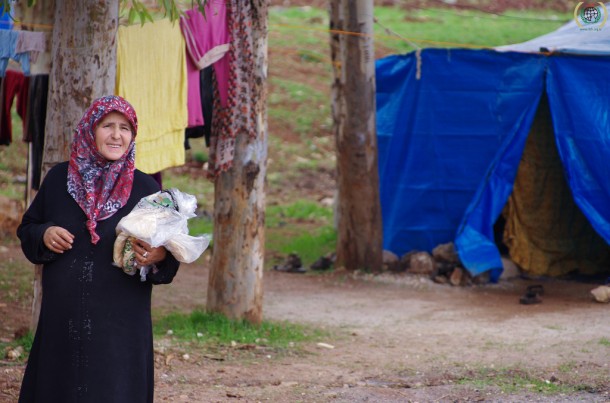LEBANON. The Syrian refugee crisis is, in number, the largest of its kind since the Second World War. You would be forgiven for thinking otherwise considering the somewhat lackadaisical response from the international community; almost four million Syrians have fled the conflict that began in early 2011 and yet the vast majority are still to be found in the overpopulated camps of Syria’s immediate neighbours Lebanon, Jordan and Turkey. However, at the size of only 10,400 square kilometres, how is a tiny country like Lebanon coping with its share of over one million refugees?
I have been living in Lebanon now for approximately five months, in the small yet bustling capital of Beirut. Perhaps it is because I too am somewhat on the fringes of Beirut society (British undergraduates are a rare species here) that I’ve naturally picked up on the tensions prevailing between the Lebanese and other foreigners, in particular the latest influx of refugees. The Armenian and Palestinian communities of Beirut are testament to the fact that the country has long been a safe haven for victims of war, but the extent to which this has awarded the Lebanese mentality with sympathy and humanitarianism is still, in my eyes, up for debate.
When I first arrived in Beirut I was immediately told that I had to be careful ‘with all those Syrians around’ by a professor at a local university, and it was not long until I was walking past the American University of Beirut with a friend of mine when we saw a fight in the street between a young boy and a man in a suit. A crowd gathered to break the two apart; the man huffed, brushed down his jacket and went inside a cafe and the boy, angry and crying, told us how it had been the third time he had been beaten up in the street ‘for being a Syrian.’ One of the many boys to be found on the streets of Hamra offering to polish your shoes and ask for money, he then sat back down on the pavement and waited for another customer.
I told a teacher of mine about the fight and he lent back in his chair and let out a long sigh. He too is Syrian and came here when the institute I study at moved its base from Damascus to Beirut because of the conflict. ‘I was in a taxi the other day,’ he told me, ‘and I was talking to the woman sitting next to me. She picked up on my dialect and asked me if I was Syrian. I said yes and she added “Oh, you don’t look Syrian.”’ When he asked her what she meant by this she shrugged off a response but the connotations were clear. My teacher is educated, well-dressed and polite – the complete opposite to the proliferated image of the impoverished Syrian refugee barking at you for money in the street. The casual racism of everyday chatter is just as revealing as any street brawl and it shows no signs of social hierarchies easing to allow for empathy and progress.
Lastly – and mostly sadly – a few weeks ago I was walking to the school I volunteer at when I saw a child face down on the side of a motorway. Several pedestrians and cars passed by but no one was stopping; the sight of Syrian refugees begging on motorways is so commonplace that I guess it was nothing out of the ordinary. I couldn’t tell if he was breathing, let alone asleep, and so a friend and I shook him awake and asked him what on earth he was doing sleeping on the kerb, and he simply said, ‘I was tired.’ Then a motorcyclist pulled up beside us and told us to leave the boy alone. ‘Don’t you realise that he’s been paid to sleep here?’ he asked us. ‘Some Syrian has paid him to sleep here because he knows you will feel sorry for him and give him money.’
Whatever the story is – whoever is being paid or isn’t – a ten-year-old child should not be begging on the streets. But Lebanon has seen legions upon legions of refugees pour into its country before and the sight of malnourished, scruffy children on the streets has been naturalised in the Beirut psyche. As a foreigner I will never fully comprehend the frustration that the Lebanese must feel at the way their country is run and the fact that its resources are incessantly and recklessly pushed to breaking point; any country would struggle with having the highest per capita concentration of refugees worldwide. However, I refuse to fathom the nonchalant attitude to which many have embraced racism and antagonism as means with which to treat a people who are victims of trauma. With the war ongoing and the international community still recalcitrantly uncommitted o resettling refugees, any significant behavioural readjustment in a worryingly large portion of the Lebanese population remains unlikely.

